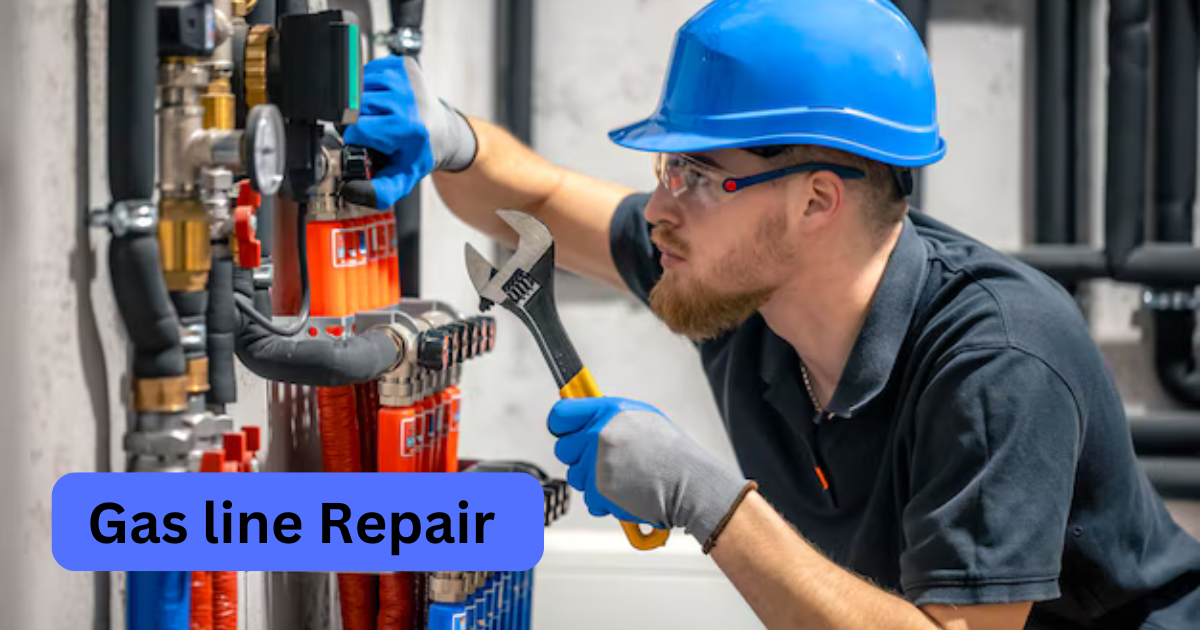The Significance of Gas Line Repair
Serious safety risks include gas leaks and malfunctioning gas lines. They may result in explosions, fires, or gas poisoning. Repairing appliances on time reduces these dangers and guarantees their optimal operation. Early detection of gas line problems can also prevent future expensive repairs or replacements.
Indications That Your Gas Line May Need Repair
It’s critical to identify the warning indicators that your gas line may require maintenance:
Unusual Smell: A gas leak is indicated by the pronounced smell of rotting eggs.
Hissing Noises: A leak may be the cause of a hissing noise close to the gas line.
Dead Vegetation: Dead grass or plant patches close to the gas line could be an indication of subterranean leaks.
High Gas Bills: It’s a warning sign if your gas bill suddenly increases without any increase in usage.
Appliance malfunctions: Gas line problems may be the cause of irregular gas-powered appliance performance.
To prevent such risks, you must take immediate action if you see any of these indicators.
Typical Reasons for Gas Line Problems
A number of things can lead to gas line issues, such as:
Corrosion: Gas lines are susceptible to corrosion over time, particularly if they are exposed to moisture.
Poor Installation: Gas lines that are installed incorrectly are more likely to leak and malfunction.
Natural Wear and Tear: Constant use causes gas pipes to deteriorate over time.
External Damage: Digging close to the gas line or construction operations may result in damage.
You may take preventative action and guarantee on-time repairs by being aware of these factors.
What to Do in the Event of a Gas Line Emergency
Take these actions if you think there may be a gas leak or damage:
Locate the gas shut-off valve and turn it off right away to cut off the gas supply.
Evacuate the Area: Since electrical equipment can start a fire, leave the area and refrain from using any of them.
Speak with an Expert: To evaluate and resolve the problem, contact a certified gas line repair technician.
Inform Authorities if Required: In extreme situations, notify the fire department or gas company in your area.
Serious incidents can be avoided and everyone’s safety can be guaranteed with prompt action.
The Benefits of Hiring Experts to Repair Gas Lines
Fixing a gas line is not a do-it-yourself job. It calls for knowledge, specific equipment, and compliance with safety rules. Experts are able to:
Correctly Diagnose Issues: Professionals are able to determine the underlying source of problems.
Verify Safety Compliance: Qualified technicians adhere to regional safety regulations.
Make Durable Repairs: High-quality repairs prolong the gas line’s lifespan and reduce potential hazards.
Provide Peace of Mind: Hiring experts guarantees that the work is done correctly and removes uncertainty.
How to Prevent Problems with Gas Lines
It’s always better to prevent than to treat. The following advice will help you maintain the health of your gas line:
Plan Frequent Inspections: Professional inspections on a regular basis can help identify possible problems early.
Steer clear of do-it-yourself installations: if possible, have qualified professionals install or modify gas lines.
Take Care When Landscaping: To prevent unintentional damage, notify utility companies before excavating.
Replace Old Gas Lines: To avoid leaks, you should think about replacing any gas lines that are many decades old.
By taking these steps, you can extend the life of your gas line and lessen the chance of an emergency.
Conclusion
Repairing your gas line is crucial to keeping your house or place of business safe and operational. Preventive actions, professional employment, and early problem discovery can save lives, lower expenses, and increase energy efficiency. Safety should always come first, and professionals should be consulted for any repairs, no matter how big or small.
FAQs
How can I determine whether my gas line has to be repaired?
Potential problems are indicated by symptoms including the smell of gas, hissing noises, dead plants, or excessive gas bills.
Can I fix a gas line on my own?
No, in order to maintain safety and compliance, only certified specialists should perform gas line repairs.
How frequently ought gas lines to be examined?
Gas lines should be inspected every one to two years, according to experts, particularly if they are old or often utilized.
If I smell gas, what should I do?
Cut the gas supply, leave the area, stay away from devices, and contact a professional right away.
How much does it cost to fix a gas line?
The degree of the damage determines the cost, although most repairs start at $150 to 500$.
Can high gas costs be avoided with gas line repairs?
Yes, repairing gas line flaws or leaks can drastically cut down on wasted gas and lessen your costs.
How long does a gas line last?
Depending on the material and upkeep, most gas lines survive between 30 and 50 years. Their lifespan can be increased with routine checks.
Gas lines are essential to modern life, and it is imperative that they operate properly. You can keep your gas system safe and effective for many years to come if you have the correct information and expert assistance.











